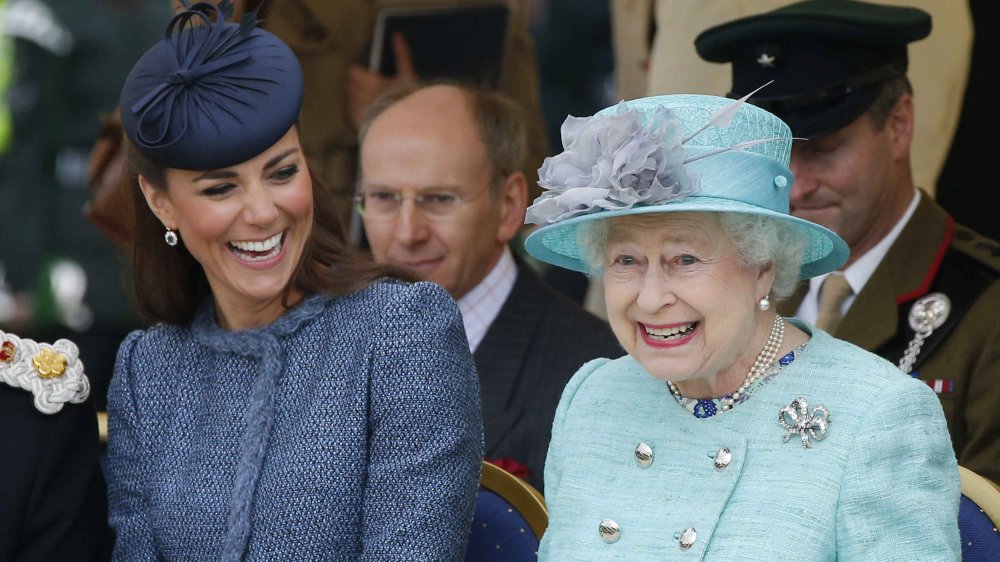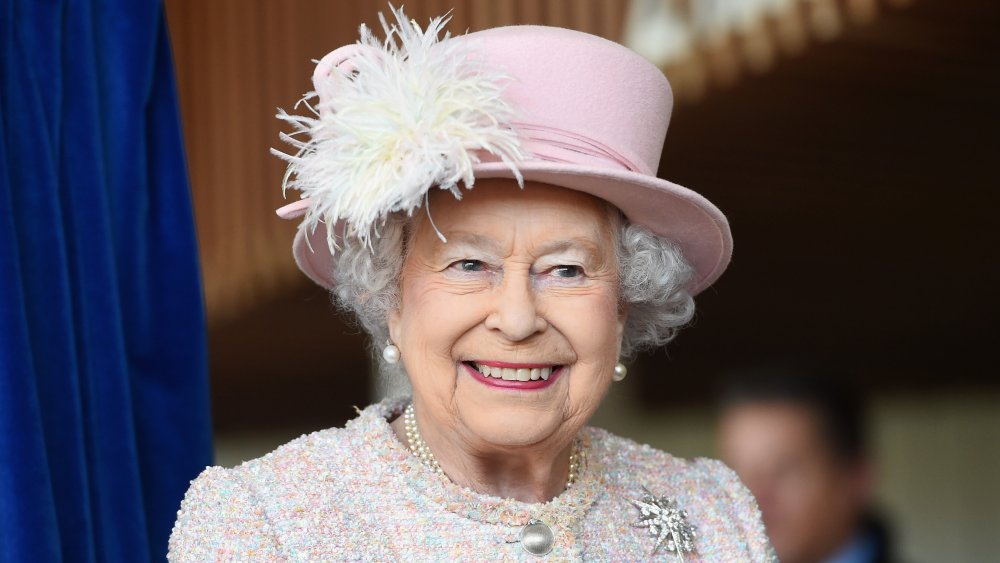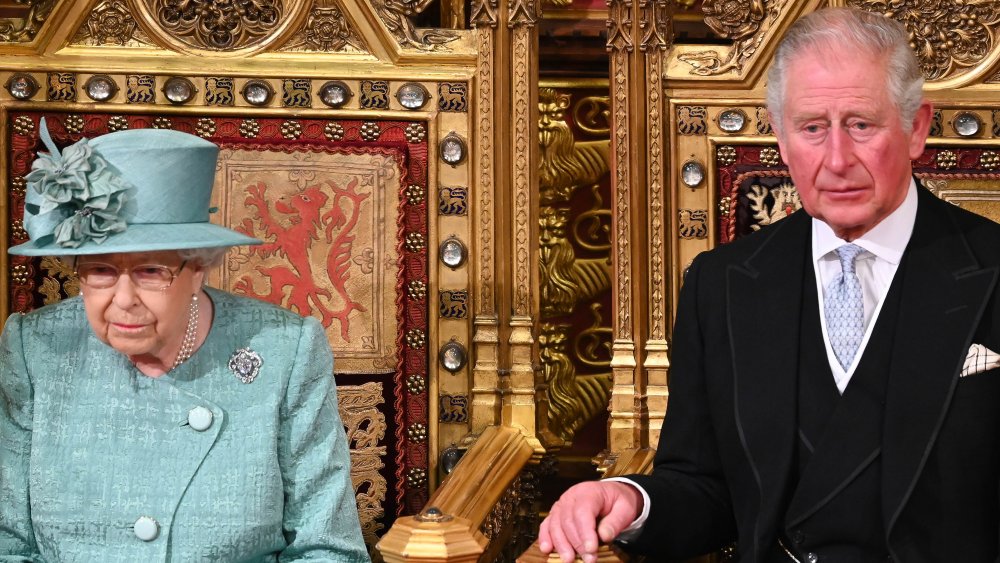Here's Why The Royal Family Doesn't Have To Pay Taxes
Being a member of the royal family comes with many perks, but members must also adhere to strict protocols that restrict what they can say, do, and wear in public. Still, maybe it'd be worth it to live in a palace, right? According to Forbes, the monarchy is valued at a whopping $88 billion, so no wonder they enjoy a lavish lifestyle and hold pride of place in society, even grabbing headlines across the pond, particularly when it comes to the antics of Meghan Markle and Prince Harry.
British people tend to complain about the royals costing them money, because of the family's regular, massive events, including the weddings of Princes William and Harry and Princess Eugenie. Members of the royal family don't exactly have regular jobs, either, so it's easy to understand why their lavish displays of wealth rub certain commoners the wrong way. Some decent, taxpaying citizens simply want them to be treated just as they are.
The crown benefits from a handy tax exemption
As it turns out, the Queen actually isn't obligated to pay taxes due to the crown's tax-exempt status, which essentially means certain acts of parliament don't apply to royals in the same way they do to regular folk, as Pop Sugar noted. However, back in 1992, Queen Elizabeth II actually offered to pay both income and capital gains tax, leading to the Memorandum of Understanding on Royal Taxation being issued in 1993. Ever since then, the Queen has paid taxes on her personal income just like everybody else.
However, the Sovereign Grant, which is an annual payment fund for the Queen's official duties, is exempt (to put it into perspective, it was £76.1 million or roughly $100 million, for April 1, 2017 to March 31, 2018, according to CNBC). So, even if the Queen receives a massive tax bill at the end of the year, it's unlikely she'll be scraping pennies together to pay for her grocery shopping.
The Queen and Prince Charles do pay some taxes
There's council (property) tax payable on Buckingham Palace, which totaled nearly £1,340 (or about $1,500) in 2017, per Metro. Plus, the Queen owns several other high-status properties, such as Windsor Castle, Balmoral Castle and her Sandringham estate, which are subject to council taxes. However, her inheritance is not taxable so properties she inherited from her father aren't subject to the same tax laws.
Prince Charles also voluntarily pays income and capital gains tax. However, his expansive Duchy estate in Cornwall isn't subject to corporation or capital gains taxes, with their official website advising funds are reinvested in the estate instead. It was originally created to provide an income for heirs to the throne, hence why it's exempt. Business Insider noted that Prince Charles' biographer wrote that he wanted to follow tradition and donate about 20 percent of his income to the government.


